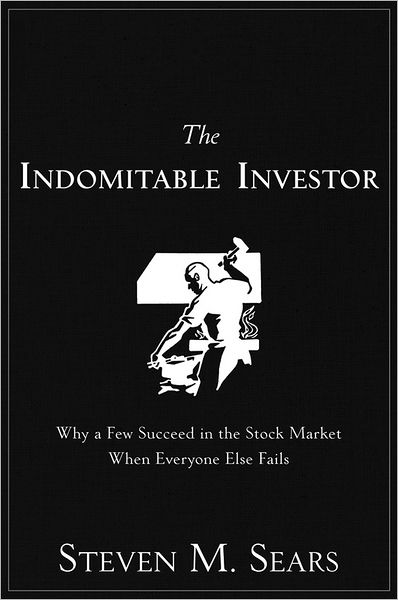
Steven Sears has been a columnist for Barron’s for many years.? He has read a lot of analyses, and written a lot of columns.? In this book he attempts to explain why many investors are the dumb money that clever investors profit from.? Or, why many investors get sucked dry by brokers, funds with high loads, other illiquid investments, etc.
There is a constant in investing and it frustrates me, because I try to educate retail investors.? People panic as a crisis unfolds, and they sell near the bottom.? Conversely, people buy as a trend nears its peak, because they conclude that they have missed out.
What would it take to educate these people, which are many among us?? Losses for one.? Second, a willingness to read historical finance, which few will do, because it doesn’t seem relevant.? If you will not learn from history, you will not learn.
As is sometimes said, “Wise men learn from the errors of others.? Average men learn from their own errors.? Dumb men never learn.”
Financial markets have more than their share of average and dumb men.? They get fleeced, and rapidly.? That dichotomy is key to investment markets.? Think about it — if you were going into a war, would you spend more to make sure you had the best armaments?? I think you would.? If so, why do you go virtually undefended in contention against Wall Street?
There are two ways to do this.? First, go passive and index.? Safe, reasonable, good.? Second, do a lot of research and find managers that eat their own cooking (like me), and invest with those that have a good long-term track record.? They should be managers with fixed principles regardless of the environment.
What it gets right
More data does not mean things are better.? For most people more data confuses them.? Giving long explanations in prospectuses is a hindrance for most, not an aid.? Maybe there should be a law that says, “Prospectuses can only be 1000 words long.? If you can’t get the risks in that amount of words, you deserve to be sued.”
It takes three years for the average investor to note that the trend has changed.? Is there any surprise then about “dumb money?”? Would it get any better if we told them this?
Quibbles
Ted Benna was a benefits consultant, not a tax consultant (P.5). Maybe they were the same back then.
Regarding Diogenes, he was a skeptic, and did not believe that there were any honest men.? That’s not a bad way to view Wall Street, butthat was not the sense I got from this book.
The author makes a lot out of calender anomalies, bu most of the research I have reviewed does not support them.
He makes a lot of the ISM, but if you aggregate his numbers, they seem higher than market returns have been over the the last 80+ years.? I find the data questionable.? Maybe he didn’t correctly describe what he cited, or maybe those he cited deceived him.
If you can discern consumer spending trends in advance of the market, you will do well, but can you do it?? This is a non-insight.
At the end of the book, page 195, he asks for new relative measures of risk.? If only it were that simple.? We all wish we had those.? They change over time, and asset classes may shift in relative riskiness due to overvaluation.? Oh to have bought bonds in 1987, and in 2000. Oh, to have bought equities in 1982, 1995 and 2003.
Who would benefit from this book: If you ae willing to be patient and following long-term strategies (like me) you might benefit from this book.? It is only meant for those willing to take a long-term view, because it tends to work.? If you want to, you can buy it here: The Indomitable Investor: Why a Few Succeed in the Stock Market When Everyone Else Fails.
Full disclosure: This book was sent to me without me asking for it.
If you enter Amazon through my site, and you buy anything, I get a small commission.? This is my main source of blog revenue.? I prefer this to a ?tip jar? because I want you to get something you want, rather than merely giving me a tip.? Book reviews take time, particularly with the reading, which most book reviewers don?t do in full, and I typically do. (When I don?t, I mention that I scanned the book.? Also, I never use the data that the PR flacks send out.)
Most people buying at Amazon do not enter via a referring website.? Thus Amazon builds an extra 1-3% into the prices to all buyers to compensate for the commissions given to the minority that come through referring sites.? Whether you buy at Amazon directly or enter via my site, your prices don?t change.

I read your review on Amazon. It is a good one. I just have to correct one thing: Diogenes was not a skeptic. He was a cynic.
You’re correct; I was sloppy.